- Home
- Jacqueline Druga
My Dead World 3 Page 3
My Dead World 3 Read online
Page 3
I glanced at his steady beeping machine, one that was insanely awkward to move to the car.
“But seriously, Lev, I saw the human being in the infected and it made me feel different. Okay, yes, you probably are thinking all this coming from a woman who poisoned a well in order for forty people to get sick and die. Maybe I’m changing. Who knows? Anyhow, I’ll let you rest, I’ll be back to sit with you tonight. I really want to be here when you open your eyes.” I leaned forward to kiss him on the forehead. “I need to make dinner. And no smart comments.”
After adjusting his covers, I left the small room, making my way toward the living area.
Ben was sat on the couch occasionally answering questions my daughter asked while she sat on the floor by his legs drawing. Bella was in the kitchen.
“Where’s the baby?” I asked.
“Sleeping,” Bella answered.
Then I noticed she was removing items from the cupboards. “Bella, honey, I was coming out to make dinner. Don’t worry about it.”
Bella froze. She looked at Ben.
“Let the girl make dinner,” Ben said. “She’s good at it.”
“I was going to cook; she doesn’t need to do it.”
“Again, I’ll repeat,” Ben said. “Let the girl make diner, she’s good at it.”
“Are you saying I’m not?”
Ben only glanced at me.
“Mommy is a great cook,” Katie said
“Thank you, sweetie.”
“Everyone else just does better.” Katie continued to draw.
I wanted to gasp in shock, but I was realistic. I knew I didn’t cook well. The rice was always too hard or too mushy. Things were too salty or bland. It was always one extreme or the other and it wasn’t always positive.
Even though it was August it wasn’t that hot outside and I told the others I was going to the porch to close my eyes.
Just as I opened the door to leave, Fleck walked in.
“Where are you headed?” Fleck asked.
“Sit on the porch. Bella is making dinner.”
“Oh, good, it’s not you.”
Ignoring his comment I went outside—it had been an insane forty-eight hours. I thought about our journey to Canada, and wondered had we known what it was like, would we still have gone?
The chatter on the radio about going north for life, could we possibly have been the only people who went or had run into trouble. We couldn’t have been the only ones that went there with a child orphaned by the circumstances of the world and adopted by a group.
I sat on the porch for a few moments, my eyes so heavy from lack of sleep, yet I couldn’t rest. There was something I had to do.
I stood and went back into the cabin.
“You didn’t change your mind about cooking, did you?” Fleck asked.
Refraining from any reply, I went into the kitchen and opened up the cabinet where we concealed the radio.
“What are you doing?” Bella asked.
“I don’t know if anyone is listening, but on the chance they are,” I said, “I need to let them know about the rules of Canada before they head there. Warn them.” I lifted the microphone. “It’s the least I can do. Because I wish somebody would have warned us.”
FIVE
FROM LEV’S SIDE
September 5
When Nila and I were twelve years old, we were always told that we were too big for the playground. I think they meant me. I was a big kid; Nila always seemed to be this bitty thing. Of course, at that age, I was only just starting to grasp the English language.
We would wait until evening to go to the playground. It wasn’t to do anything bad—we were our own clique and were still very immature.
We’d run down to the playground and had this dare game. There was a round thing, Nila called it a merry-go-round, but it didn’t look like any merry-go-round I had ever seen. It was a large saucer with handlebars for kids to hold while somebody pushed it and made it spin.
Our game was that we would stand on the outside of the saucer, hold on, and run to make it spin to the point our legs lifted from the air. The dare was, who could stand on the outside longer before they jumped on the saucer.
The one particular day we had crushed the ice cream in her father’s freezer, consuming every bit, the spinning didn’t feel right and I knew that if I didn’t stop, not only would I throw up, Nila would be the recipient of it when it carried right back to her. So…I let go.
I was big, I never would have thought that letting go would throw me so far.
It did.
Letting go and sailing was the last thing I remembered.
Until I woke up in the hospital.
Apparently, I landed and hit my head so hard, I fractured my skull.
I wasn’t out of it for too long—my father told me only a day—then I was talking gibberish for a day, then after that, I was fine. I had a headache for a while and was warned never to go on that round thing again.
I never did.
I have been told that when a person suffers a head injury, they lose time. They don’t remember anything that happened before the injury.
That was not the case when I was twelve and that was not the case of my most recent head trauma.
I remembered everything up until the last blow. The look in that soldier’s eyes as I was out of control and pummeling. Never in my life had I felt so enraged. A protective instinct bigger than even I thought I possessed came over me when I saw the gun aim at Katie. I remembered how helpless and pathetic I felt when we sat on the highway waiting for daylight. My head feeling as if there was a knife in it and every part of my body screaming with pain. Nila woke me up constantly. I just wanted to tell her I was sorry for being weak, but the words wouldn’t form and eventually I couldn’t hold my eyes open.
When I first came to, I was back in Mercy Hospital at twelve years old. I was looking for my father and couldn’t figure out why Nila looked so old. At first I thought I had been in a coma for decades, then I remembered…
I remembered.
I guess I had a pattern with head injuries, because when I was trying to speak to her, Nila kept saying, “Lev, honey, I don’t understand you.”
Katie did.
She came to see me when everyone was asleep. She would tell me stories.
Maybe I only spoke gibberish to Nila, or Katie just pacified me.
The pain of that trip to Canada pummeled me more than physically. It wiped me out emotionally. I wished I didn’t remember, but I did.
However, I would use the excuse of the head injury to conveniently forget, because I didn’t want to talk about it.
We were really back at the cabin safe.
We had failed when we tried to search for The Green, and we failed horribly in our search for an infection-free Canada.
I prayed that, finally, everyone would realize we didn’t need to go anywhere. Leaving was a mistake, one I hoped they didn’t want to make again.
SIX
AGAIN
September 7
Lev’s progress seemed slow. He had finally woken up three days after returning from Canada. His first day awake, I wondered if he had brain damage. He spoke incoherently and looked at us funny for not understanding him.
It didn’t take long for him to be alert and speak, well, Serbian. None of us knew what he was saying; I was surprised that he even remembered the language being that he’d traded his native tongue for English when he was ten years old.
He knew who I was, he knew everyone, he just didn’t know English.
“It’ll come back,” Ben told me. “Give it time, it’s all part of the head injury.”
I remembered when Lev first came to America it took him a long time to learn English. I was a child and it didn’t bother me. As an adult, I worried.
Little by little over the next week, his English came back, then so did Lev.
Everything was in a fog to him. It didn’t get better. Even after ten days. He recalled Corbin being
shot and that was it. He didn’t remember beating that soldier or taking a beating.
He did remember an important piece of information though. Canada had ended badly. I was kind of hoping, at least for the time being, that he wouldn’t remember Canada at all. That would make my news to him go a little easier.
Fleck and I were going back. We were heading to Canada to try to get Billy and Sawyer.
Lev kept his composure when I delivered the news. “When?” he asked.
“In an hour. We figured we’d head up there and be back either before dark or first thing in the morning.”
“You and Fleck?”
“Yeah, Ben wanted to go, but with you still needing watched and the baby…”
“First, I do not need to be watched.”
I laughed.
“What’s so funny?”
“Not long ago, you were speaking Serbian, Lev. You need watching. You physically can’t move the way you need to move. Your broken leg is still healing, plus you went and got yourself pretty beat up.”
“But to be babysat.”
“I know this is a lot for you,” I said. “I get it. I do. But if you don’t heal right, you’ll never be a hundred percent and I need you a hundred percent. Understand?”
Lev nodded.
“We’ll keep in touch by radio…” I snapped my finger. “Speaking of which. I spoke to Hal on the radio.”
“It’s been a while.”
I nodded. It had been. We hadn’t heard from Hal since before our cabin was attacked and not talking to him made us all believe he had either been attacked himself, or had been in on the hit we took.
“What did he say?” Lev asked.
“He was headed to Canada. I told him about the rules. He was fine with them, he just needed to get to an infection-free area.”
“It’s so dangerous out there, Nila.”
“I know. But Fleck and I will be careful. I know the route to take that’s pretty clear. It’ll take us right up to the border road.”
“But what was clear two weeks ago, may not be clear now.”
“We’ll try. We’ll avoid getting close to Buffalo as there were a lot of infected there. After that, you know it was pretty clear.”
“I’m allowed to be concerned,” Lev said.
“You are. I am too, mainly,” I said. “What the hell am I going to talk about to Fleck for five hours?”
I thought it was funny. Lev didn’t.
He still wasn’t himself, and still not feeling well, I could tell. Sick or not, I knew he understood going to Canada again was something we had to do.
<><><><>
“Burgers,” Fleck said. “I miss burgers.”
“We could make venison burgers,” I said. “Not the same but close.” Then I cringed. What was I doing? I was perpetuating the food conversation that seemed to have taken up most, if not all, of the ride. That was what Fleck wanted to talk about.
Food.
Why?
Talking about things like pizza and tacos was only going to make it worse.
“Maybe they have them in Canada,” Fleck suggested.
I didn’t think we were going to be there long enough to get takeout. I tried to explain to Fleck what we’d see. How after Buffalo, we’d hit that scenic route until the roadblock at the border, and then from there we’d have to walk. We’d see very little if any infected or deaders.
Deaders was a name Corbin had given those who had been infected, then died and kept going. That was the one thing, other than food, that we talked about. For Corbin we would forever call them deaders.
It really looked like I was going to hold true to my word. The only thing that was different was we saw more deaders, which we expected considering I told him there had been infected in the area before.
Infected turn the dead.
Made sense.
The scenic route along the lake that Lev, me, and the kids had taken previously wasn’t so scenic.
Again, it didn’t surprise me.
We saw more bodies. Bodies of those who’d been violently ripped to shreds. Birds and animals picked at the carcasses. One particular body was covered with birds.
Fleck slowed down. “There you have it.” He pointed.
“What?” I asked.
“That is why this will never end. We’ll come to an end; it will look like it’s over. You know, with only the dead ones left and us waiting for them to decay off. Then it will start again. No one will be able to figure out why, and that is why. Right there.” He referenced the birds eating their dinner.
“You think?”
“Yeah, absolutely. Think about it,” he said. “Bird flu.”
“Bird flu?”
“I know it wasn’t the bird flu, but birds can carry a flu, why not this?”
“I’m…pretty sure they mean chickens.”
“No, all birds.”
“No, I think just chickens.”
“I miss fried chicken.”
Silently I exhaled and bit my bottom lip in thought, watching as we rolled by. “Winter,” I said. “Winter should kill them off.”
“Maybe the infected. The dead are already dead. Ben and I discussed this.”
“Really? What does Ben think?’
“He thinks it will freeze them, but they’ll defrost and revive.”
“I totally disagree.”
“We’ll find out, won’t we?” Fleck tapped his hand on the steering wheel in a second of silence, then, “Fried rice. Not the type you get in Chinese restaurants, but like Hibachi.”
I wanted to groan, I thought we had completed the food conversation and wandered what visual made him think of fried rice.
He was obsessed, reciting off what I believed was an entire Chinese take-out menu. Maybe that was Fleck’s way of ignoring what was going on, or maybe he just thought it was good conversation.
We made it across the Thousand Islands Bridge, and of course Fleck had to bring up salad when we did that. He kept going back to the fried rice, adding, “What about yum yum sauce, come on you have to like yum yum sauce.”
I made the mistake of mentioning I worked at Arby’s before the world ended and that started an entire conversation. One that ended abruptly when we reached the road that led to the border.
The cars were still there, abandoned.
There had been a yellow Volkswagen, I remembered it, and it was still parked on the side of the road.
“This is it?” Fleck asked.
“Yeah this is it.”
“Should we drive up to the border?”
“The helicopter will end up telling us to park and walk.”
Fleck peered closer to the windshield. “I don’t see a chopper."
“You will.”
I felt it, something in my bones; it was different. It didn’t look visually different, but it definitely was.
I think Fleck felt something too because he kept peering to the sky. “Are you sure it was like this when you were here before?” he asked.
“Positive. Pull over but leave the car where we can easily get to it.”
Fleck did, parking carefully so no one would block us in.
I stepped out of the car and looked back to see Fleck grabbing the rifles. “They won’t allow us to bring them in.”
“Until I know for sure we aren’t running into trouble, these come with us.” He handed me one.
I placed the strap over my shoulder.
“How far is it?” he asked.
“Just up a ways. Maybe a quarter of a mile. As soon as we clear this crest we’ll probably see people walking. Then when we hit the border, there will be people everywhere. It’s buzzing. The camp that’s beyond the fence is big and bright and full of life. It’s just too bad it wasn’t for us.”
“Maybe there’s a bigger reason.”
I turned to walk backwards looking around.
“What is it?”
How to answer that; what to tell him? It wasn’t the same. For as much as I wanted it to b
e, it wasn’t. Something was off. It caused almost a feeling of dread in me. It felt empty. It was as if I could feel the silence.
“It’s really quiet.”
“Wasn’t it before?”
“I guess. I don’t know. I don’t remember because we heard the chopper as soon as we got here.”
“You would think we’d hear it.”
“You would think. It’s just…” I stopped walking and talking when we reached the crest. Unlike before there were no people making their way to the border.
It was an empty road. Not only was the roadway void of people, there was also a faint sound.
A creaking, like squeaky metal.
“Maybe everyone who was crossing already crossed,” he said. “Nila?”
I faced him. “Something isn’t right.”
“Oh, you think? I have been questioning this since we pulled up and you decide now, right this second something is wrong.”
“No, I said something isn’t right.”
“Same difference.”
“No, it’s not.”
“Well, what do you want to do?” Fleck asked. “Keep going forward or go back?”
“Keep going.”
Fleck pulled his rifle forward, and I did the same.
The creaking sound grew louder with each step we took until we were close enough to see the source.
“Keep going forward or go back?” Fleck repeated the question.
I didn’t answer.
“I’m assuming it wasn’t like this a couple weeks ago?”
He was being facetious. I glanced over at him then back to the border.
There were no guards, no people; the culprit of the noise was the gate. It had broken off its hinges and clanked against the frame with each slight breeze.
We were close enough to see something was wrong, but still too far away to know exactly what had happened. The main body of the camp was just a bit further across the border and through the fenced-in area.
“This border isn’t secure,” Fleck commented.
“Okay, stop,” I told him. “This isn’t a joke.”
“I’m not joking. It’s wide open, Nila. I don’t see any…infected.” He sniffed. “Or smell them, there’s a good breeze, we should at least smell them.”

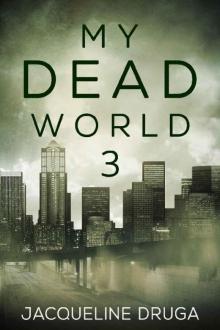 My Dead World 3
My Dead World 3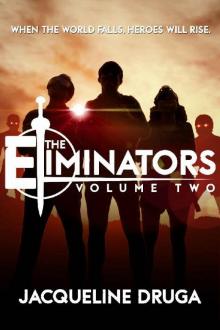 The Eliminators 2
The Eliminators 2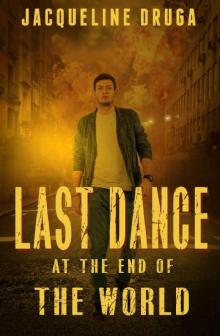 Last Dance at the End of the World
Last Dance at the End of the World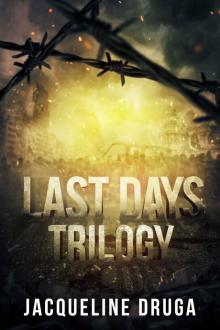 Last Days Trilogy
Last Days Trilogy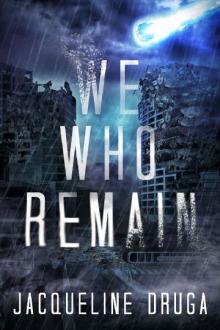 We Who Remain
We Who Remain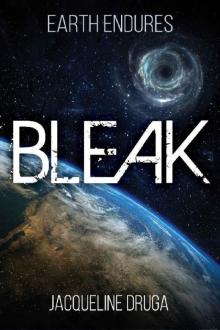 Bleak
Bleak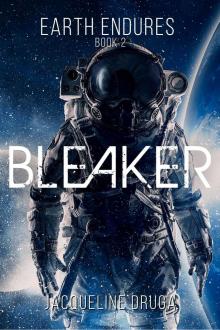 Bleaker
Bleaker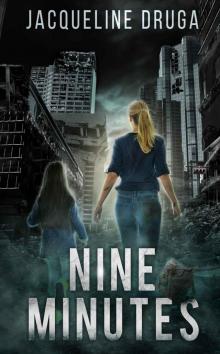 Nine Minutes
Nine Minutes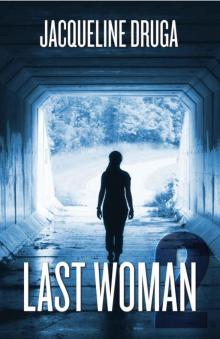 Last Woman 2
Last Woman 2 Terms (The Experiments Book 3)
Terms (The Experiments Book 3)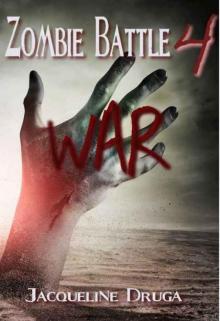 Zombie Battle 4: War
Zombie Battle 4: War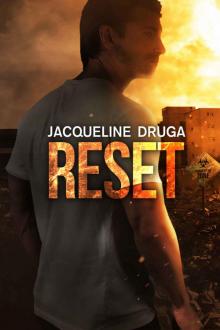 Reset
Reset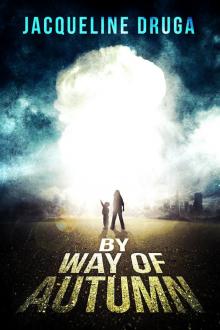 By Way of Autumn
By Way of Autumn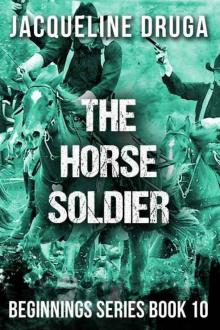 The Horse Soldier: Beginnings Series Book 10
The Horse Soldier: Beginnings Series Book 10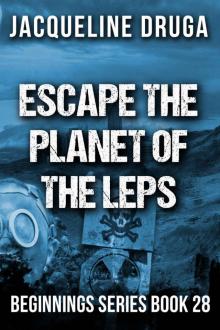 Escape the Planet of the LEPS: Beginnings Series Book 28
Escape the Planet of the LEPS: Beginnings Series Book 28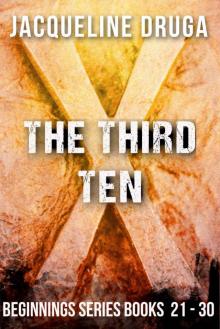 The Third Ten
The Third Ten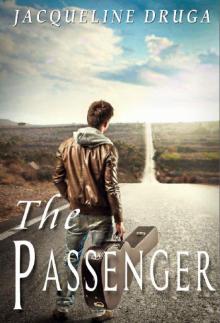 The Passenger
The Passenger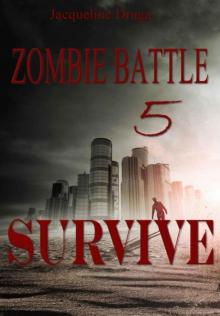 Zombie Battle (Book 5): Survive
Zombie Battle (Book 5): Survive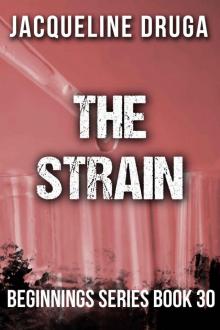 The Strain
The Strain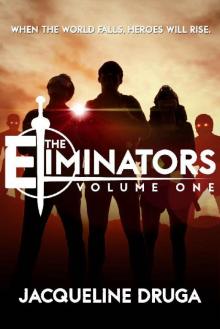 The Eliminators 1
The Eliminators 1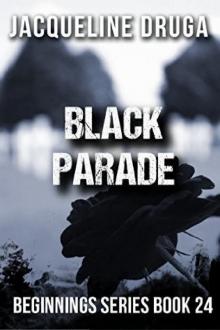 Black Parade
Black Parade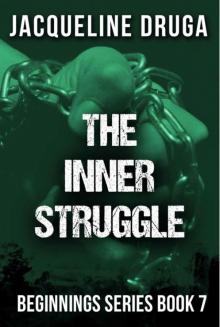 The Inner Struggle: Beginnings Series Book 7
The Inner Struggle: Beginnings Series Book 7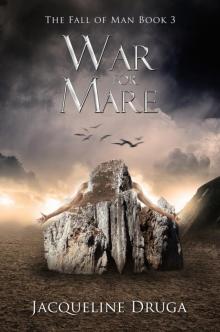 The War for Mare (The Fall of Man Book 3)
The War for Mare (The Fall of Man Book 3)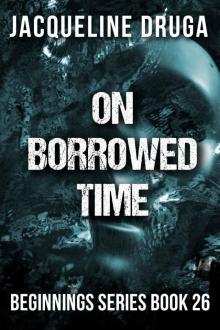 On Borrowed Time: Beginnings Series Book 26
On Borrowed Time: Beginnings Series Book 26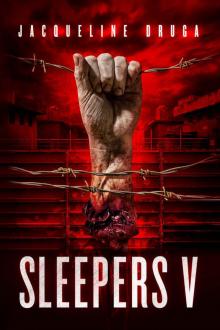 Sleepers (Book 5)
Sleepers (Book 5)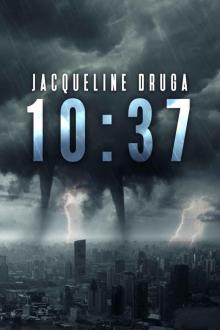 10:37
10:37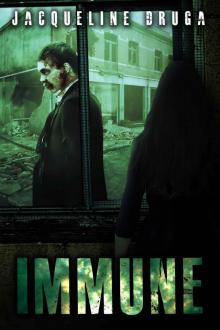 Immune
Immune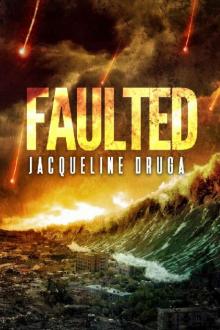 Faulted
Faulted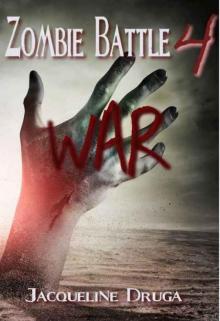 Zombie Battle (Book 4): War
Zombie Battle (Book 4): War Sleepers (Book 6)
Sleepers (Book 6)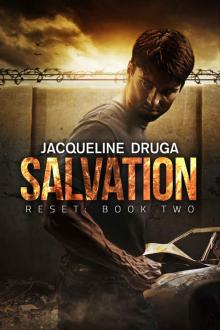 Reset (Book 2): Salvation
Reset (Book 2): Salvation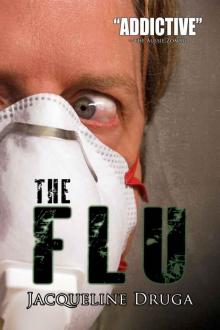 The Flu (A Novel of the Outbreak)
The Flu (A Novel of the Outbreak)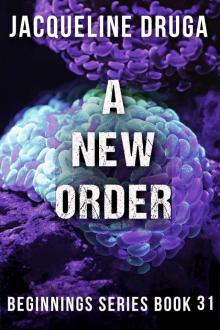 A New Order
A New Order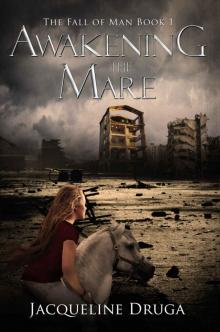 Awakening the Mare (Fall of Man Book 1)
Awakening the Mare (Fall of Man Book 1)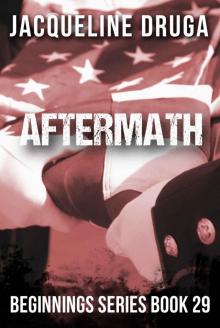 Aftermath_Beginnings Series Book 29
Aftermath_Beginnings Series Book 29 The Iso-Stasis Experiment (The Experiments)
The Iso-Stasis Experiment (The Experiments)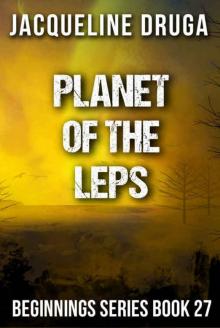 Planet of the Leps: Beginnings Series Book 27
Planet of the Leps: Beginnings Series Book 27 The Big Ten: The First Ten Books of the Beginnings Series
The Big Ten: The First Ten Books of the Beginnings Series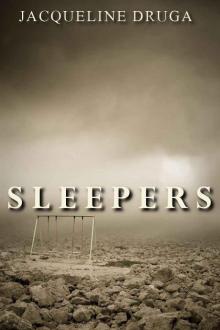 Sleepers
Sleepers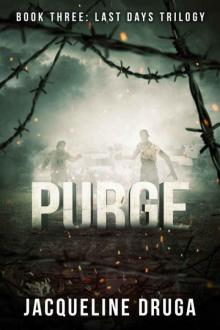 Purge: Book Three: Last Days Trilogy
Purge: Book Three: Last Days Trilogy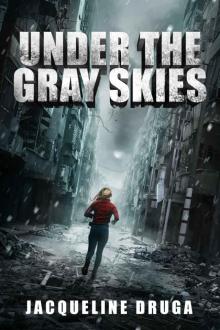 Under the Gray Skies
Under the Gray Skies![Rectify [Book 2] Read online](http://i1.bookreadfree.com/i1/04/04/rectify_book_2_preview.jpg) Rectify [Book 2]
Rectify [Book 2]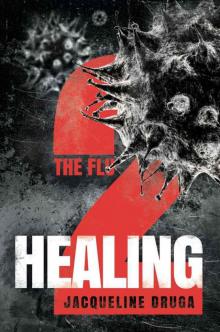 The Flu 2: Healing
The Flu 2: Healing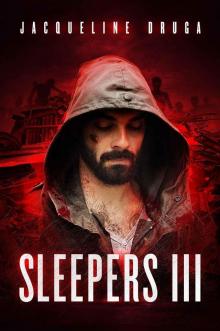 Sleepers 3
Sleepers 3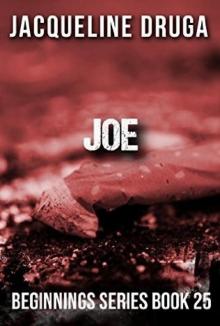 Joe
Joe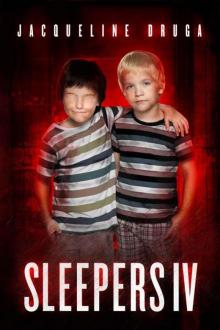 Sleepers 4
Sleepers 4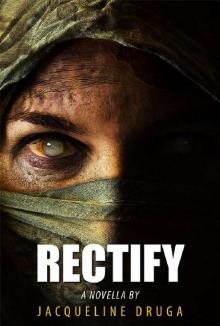 Rectify_A Novella
Rectify_A Novella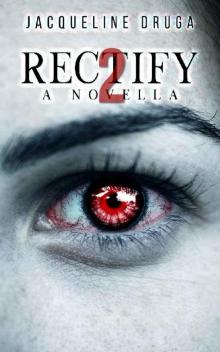 Rectify 2
Rectify 2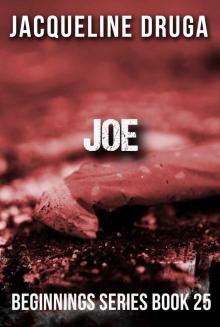 Joe (Beginnings Series Book 25)
Joe (Beginnings Series Book 25)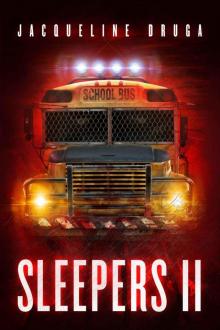 Sleepers 2
Sleepers 2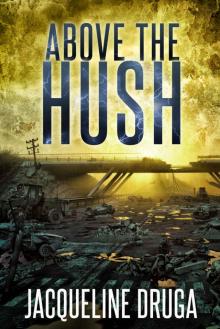 Above the Hush
Above the Hush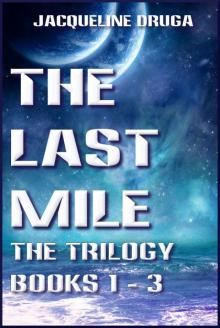 The Last Mile Trilogy
The Last Mile Trilogy The Other Side of Heaven
The Other Side of Heaven The Next Ten: Beginnings Series Books 11 - 20
The Next Ten: Beginnings Series Books 11 - 20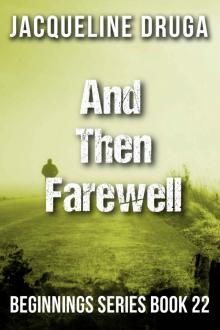 And Then ... Farewell (Beginnings Series Book 22)
And Then ... Farewell (Beginnings Series Book 22)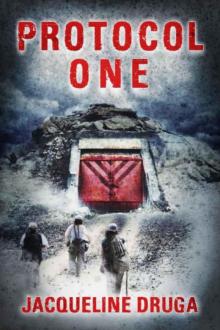 Protocol One
Protocol One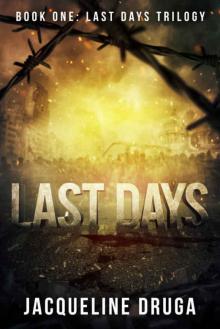 Last Days (Last Days Trilogy #1)
Last Days (Last Days Trilogy #1)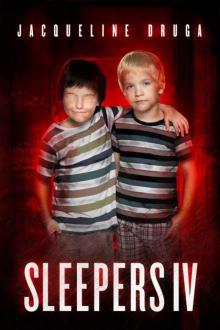 Sleepers (Book 4)
Sleepers (Book 4)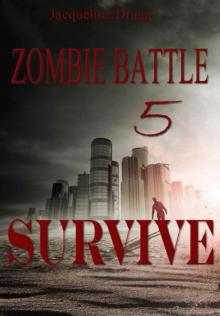 Zombie Battle 5: Survive
Zombie Battle 5: Survive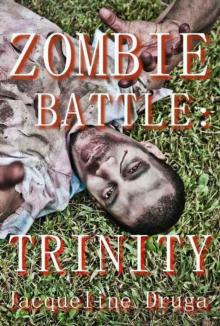 Zombie Battle (Books 1-3): Trinity
Zombie Battle (Books 1-3): Trinity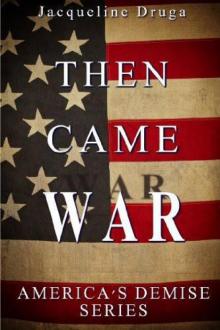 Then Came War
Then Came War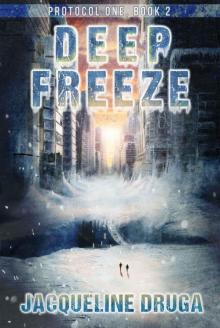 Deep Freeze: Protocol One, Book 2 (Protocol One Saga)
Deep Freeze: Protocol One, Book 2 (Protocol One Saga)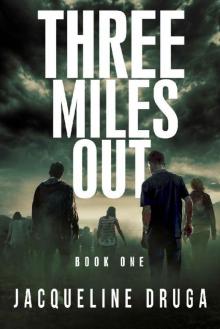 Three Miles Out: Book One
Three Miles Out: Book One No Man's Land
No Man's Land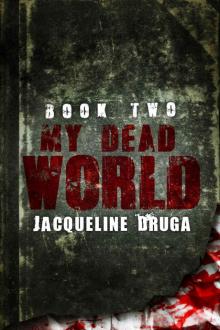 My Dead World 2
My Dead World 2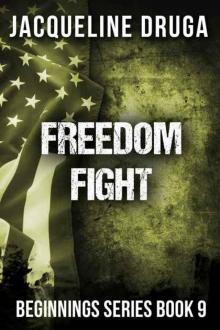 Freedom Fight: Beginnings Series Book 9
Freedom Fight: Beginnings Series Book 9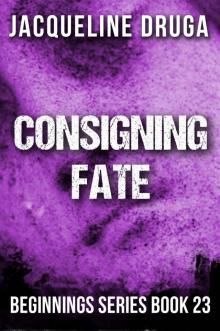 Consigning Fate: Beginnings Series Book 23
Consigning Fate: Beginnings Series Book 23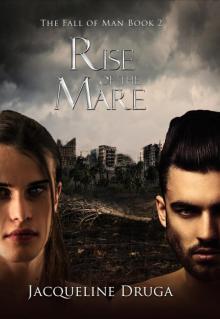 Rise of the Mare (Fall of Man Book 2)
Rise of the Mare (Fall of Man Book 2)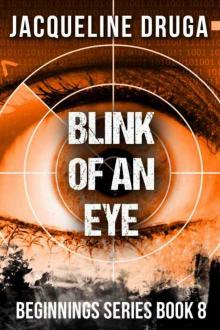 Blink of an Eye: Beginnings Series Book 8
Blink of an Eye: Beginnings Series Book 8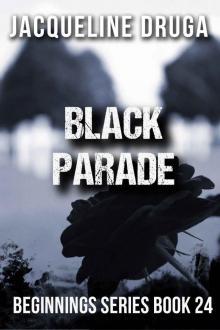 Black Parade (Beginnings Series Book 24)
Black Parade (Beginnings Series Book 24)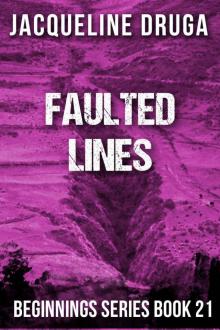 Faulted Lines: Beginnings Series Book 21
Faulted Lines: Beginnings Series Book 21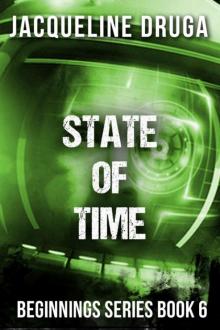 State of Time: Beginnings Series Book 6
State of Time: Beginnings Series Book 6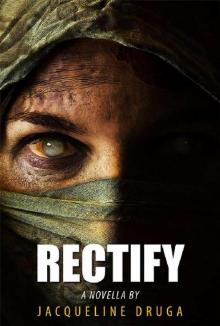 Rectify
Rectify Amoeba (The Experiments)
Amoeba (The Experiments)